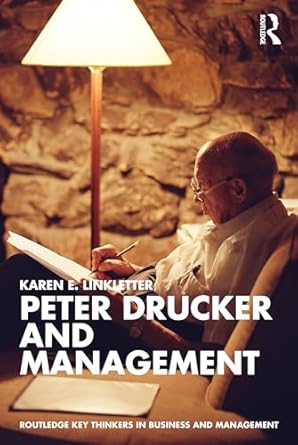
The new, Fall 2024 issue of Leader to Leader, the Wiley quarterly journal where I am managing editor, is now online. As I did in 17 Takeaways From Leader to Leader Summer 2024 Issue 113, and many earlier issues, I’m highlighting takeaways and sample quotes from each of the articles below.
In addition, also see the Leader to Leader monthly newsletters, ‘What’s Happening in Leader to Leader,’ and our various virtual issues.
Navigate the Challenges of the Unexpected
Columnist: Sarah McArthur, Editor-in-Chief, Leader to Leader
Article: “It Is the Quality of Our Character that Determines Our Performance and Results”
Sample quote:
As a thought partner and advisor, I work with individuals and leaders on how they approach change and navigate the challenges of the unexpected to create a bright future for all of their stakeholders, including generations to come. We start with their values and the fact that the values by which we work together positively, such as inclusion, listening, helping, connection, civility, service, and a host of others which focus on cooperation, respect for all people, and building consensus, don’t change. And they don’t change even while the external circumstances influencing our working together are constantly changing and we may not always agree on the best plan, outcome, or result.
Addressing the Big-Picture Questions
Author: Karen E. Linkletter
Article: “ Peter Drucker: More Relevant Than Ever For Today’s Leaders”
Sample quote:
Today’s leaders of all organizations must recognize their larger role in society. How does my organization reflect the values of the society or societies in which we operate? Do our internal decisions seem rational to our team members, leading them to have faith in our abilities? Do we provide our team members with maximum opportunities for individual growth, yet still make sure that individual activities are aligned with the organization’s larger vision and mission? Do our people see that they make a difference not just within our organization, but also to society? The big-picture questions that Drucker addressed in his social theory apply to all leaders.
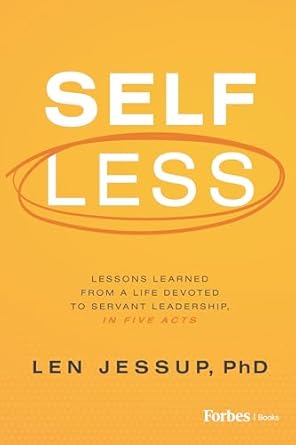
The Value of Periodic Reflection
Author: Len Jessup
Article: “Becoming a Self Less Leader: Lessons From a Life of Servant Leadership”
Sample quote:
To be a better leader, you need to first stop and think about why you are doing what you are doing. In fact, it’s good to do this throughout your entire stint as a leader. Periodic reflection is healthy, appropriate, and necessary. It helps you to better understand your motivations and to hone them to be a more effective leader. When you think about why you lead and what you are trying to accomplish, one would hope you are trying to make a positive difference through helping others.
Promoting a Meaningful Vision
Author: Alice Korngold
Article: “Vision: The Role of Leaders in Imagining a Better Future”
Sample quote:
Promoting a meaningful vision often involves engaging with partners. Nonprofit and governmental organizations provide vital services in education, healthcare, economic development, and human rights, as well as climate change resilience and mitigation. Their success is often buoyed by collaborating with companies that recognize mutual interests and synergies. Nonprofits bring expertise, as well as credibility and relationships with communities that are often marginalized, while companies bring valuable resources, including people, technology, and funding.

Understanding and Mitigating Your Biases
Author: Ty Wiggins
Article: “Bursting the CEO Bubble”
Sample quote:
Humans have biases. You have biases, probably more than you accept (this is known as egocentric bias, which is the tendency to see yourself as less biased than other people). If you are a senior executive, you will have likely been working with your biases and “on them” for a long time.
Working on understanding and mitigating your biases is a key aspect of leadership (and human) development. There will be several that will impact the way you think and operate, consciously and subconsciously. You should make this part of your ongoing accountability and growth, especially as CEO, as your biases now have a much greater chance of impacting a larger group of people.
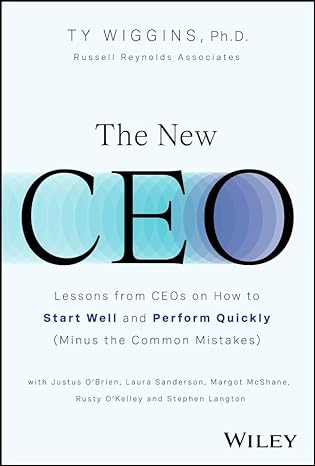
Reassess the Role of Coaching in Organizations
Authors: Phil Renshaw and Jenny Robinson
Article: “Re-Orienting Leadership Coaching For Sustainable Effectiveness”
Sample quote:
Numerous models, researchers, and advisers recommend that the skill of coaching is fundamental (not optional) to effective management/leadership. We believe that when managers have the skills of a leader-who-coaches, their proficiency at growing and developing their own staff increases. Instead of bringing in professional coaches, development issues are addressed directly and naturally. In the long run, these changes also serve to limit the systemic problems that are often inappropriately addressed through offering individuals a coach. We need to reassess the role that coaching plays in our organizations and shift the investment directly into the development of our managers as leaders-who-coach.
Teams Working Together to Their Full Potential
Authors: Debbie Collard and Susan Ireland
Article: “The Business Plan Review – the Heartbeat of the Organization”
Sample quote:
Most leaders have their organizational position because they have proven they have good judgment and business understanding. They may feel like they can manage the organization better by just relying on their personal judgment and experience. No matter how good their judgment is, how well they understand the business, or how knowledgeable they are in general, leading in today’s complex environment requires more than any one person can bring to the table. Leadership requires addressing multifaceted challenges and overcoming obstacles and unexpected twists and turns. Success takes everyone on the team working together to their full potential. The leader’s role in the BPR—which is critical—is to create an environment conducive to Our “Working Together”© Leadership and Management System, encourage and nurture the organization’s operating processes and expected behaviors, and keep the BPR meeting on our relentless, positive, implementation plan.
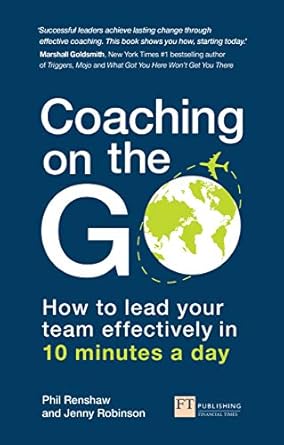
Leading Through Complexities and Uncertainties
Author: Rebecca Homkes
Article: “Thrive Through External Uncertainty by Building Internal Predictability”
Sample quote:
For all the speeches and townhalls CEOs give on the complexities and uncertainties of the current environment, they spend considerably less time talking about how to operate within this environment and even less recognizing and rewarding leaders who do. To achieve this last piece of internal predictability, change must be accounted for as a core part of execution. When leaders adapt and adjust within the boundaries of the strategy, this must be recognized and rewarded. Most organizations focus on hitting numbers on time and sticking to the plan. Team members are rarely praised for stopping or changing something. Leaders who make fast decisions while executing but stay within the set organizational boundaries should be celebrated, especially when the plan is becoming challenged by market uncertainties.
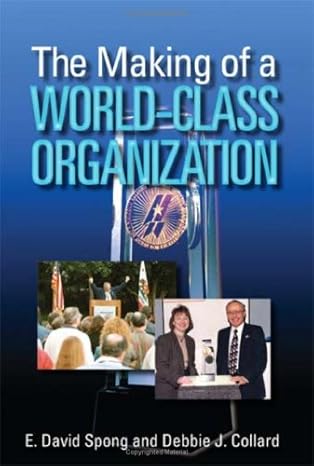
Telling the Story of an Important Achievement
Author: Ron A. Carucci
Article: “Organizational Justice: When Dignity and Fairness Join Forces”
Sample quote:
Nothing strengthens another person’s dignity more than asking them to tell you the story of an important achievement. Far from just routine praise or a high-five, acknowledging that the contribution is a personal reflection of them as the contributor elevates their sense of esteem in your eyes and their own. Simply saying, “Wow, I’m sure that was more challenging than it looked. How did you do it?” sets the stage for them to share the parts of the story most would never hear: where they struggled, where they doubted, moments they broke through obstacles, and what makes them most proud of the achievement. Without a doubt, an animated retelling of a story to an intently listening ear solidifies the teller’s deep sense of significance. Ask questions, jot down a few notes, and remain fascinated. It may only take 15 or 20 minutes, but it may be one of the most lasting experiences of dignity you offer someone.
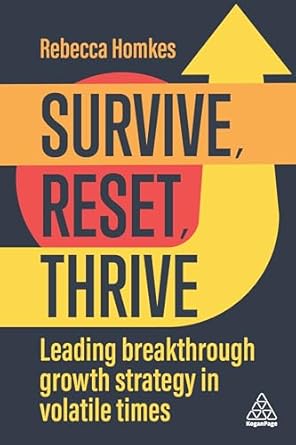
Engines of Innovation and Productivity
Author: Natasha Wallace
Article: “Future-Proofing Organizations with Conscious Leadership”
Sample quote:
High-performing teams are the engines of innovation and productivity within any organization. They consistently exceed expectations and deliver outstanding results, setting the benchmark for excellence. The secret to their success lies not just in the individual competencies of team members but, more importantly, in the dynamics that govern their interactions. The 2019 Oxford Review special report, High Performance Teams, set out several key characteristics such as trust, diversity, clear roles, shared emotions, and self-efficacy as being foundational to these teams’ effectiveness. From their in-depth analysis of the factors leading to high performance in teams, they also found that a developmental mindset and mutual respect and encouragement were also vital.
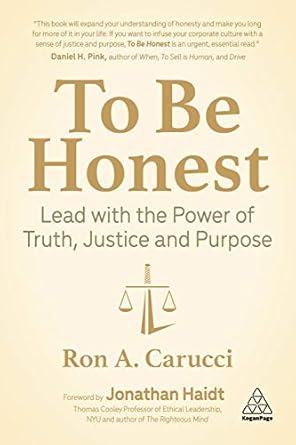
Taking Advantage of a Rare Opportunity
Author: Byron Ramirez
Article: “Leadership Perspectives from Entrepreneurs in South Korea and Thailand ”
Sample quote:
As I traveled between South Korea and Thailand, I had the opportunity to meet entrepreneurs and learn how they manage and lead their organizations. When I set out on my trip, I did not plan to interview entrepreneurs in these countries. But realizing that I had a rare opportunity, I used it to learn about the way entrepreneurs perceive management functions and leadership. To be clear, this was not a systematic study. I did not pre-arrange meetings with any of the people I met with, and our conversations were casual, without a script. This, however, does not negate the observations I made about entrepreneurs in this region and their implications for other entrepreneurs.
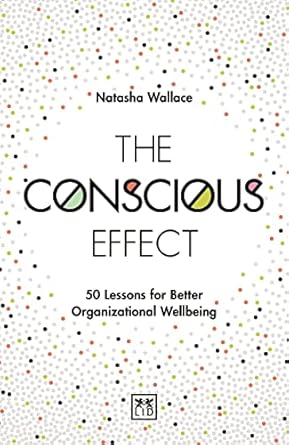
Respecting and Upholding Human Principles
Author: Hamilton Mann
Article: “Building an AI Compact to Uphold Artificial Integrity”
Sample quote:
Artificial Integrity is the approach aimed at ensuring that AI not only mimics a form of intelligence but also adheres to a robust framework of integrity in which AI systems can sustain in society. By integrating integrity into the very core of AI development and deployment processes, we ensure that systems not only perform tasks efficiently but also do so in a way that respects and upholds human principles. This proactive approach aims to protect human dignity throughout the system’s life within the human ecosystem.
In essence, AI is not merely a tool but a profound influence of societal norms and value systems. Its development should not be driven solely by the pursuit of technological advancement but should be guided by a commitment to uphold and enhance societal values. In considering AI development, leaders must transcend the allure of technological novelty to embrace the complex socio-cultural landscapes in which these technologies operate.
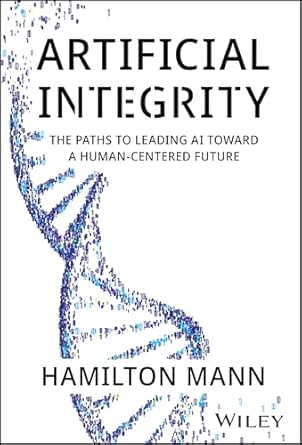
Contemplating Our Legacy on a Daily Basis
Author: Jann E. Freed
Article: “Breadcrumb Legacy: The Everyday Impact of Our Actions, Decisions, and Behaviors”
Sample quote:
During one of my leadership workshops, one of the participants said that he thought thinking of one’s legacy was self-centered. He didn’t think we should be thinking about ourselves all of the time. He was thinking more about legacy at the end of a career or life—not on a daily basis.
I responded by saying, “Why shouldn’t we be thinking about the impact our thoughts, behaviors, and actions are having on those around us?” When we started talking about impact and influence, he agreed that it was an important concept to consider. In fact, when I describe breadcrumb legacy as a way to live our life, most people find this an insightful concept. It can help us manage our emotions and prevent us from doing or saying something we might regret.
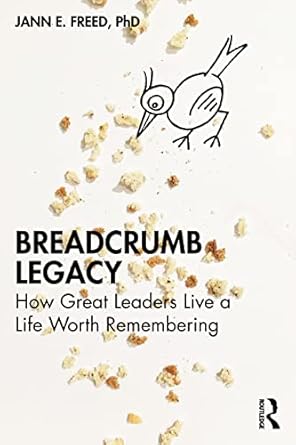
A Fierce loyalty to the Flourishing of Unique Organizations
Article: “The Changing Roles and Responsibilities of Corporate Boards”
Sample quote from Bryce C. Tingle (N. Murray Edwards Chair in Business Law at University of Calgary):
Most directors, business executives, and experienced lawyers have a belief that our one-size-fits-all, rather crude corporate governance regime is ineffective or even harmful. We certainly have poll results that regularly show they think this. My book is an attempt to give those who are engaged in the governance of public companies the confidence to push back on governance practices or structures that they don’t feel are best for their businesses.
In my career, I have worked with many outstanding corporate directors. What they all have in common is a fierce loyalty to the flourishing of the unique organization they lead. In contrast, some of the worst directors I have served with see their job as doing whatever certain outside third parties say they would like the company to do. Large institutional shareholders, corporate gadflies, and proxy advisors don’t know enough, or even possess the right incentives, to really understand what specific corporations need to succeed.
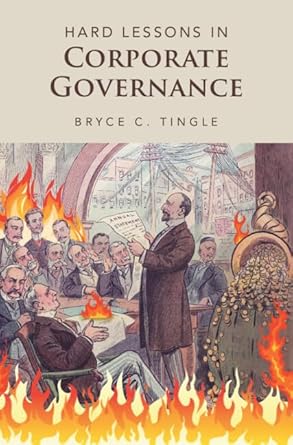
Learning From Anyone and Everyone
Article: “Formulating and Communicating Effective Questions”
Sample quote from Jeff Wetzler (Chief Executive Officer/CEO of Transcend, an innovation organization, and former Chief Learning Officer at Teach For America):
While I did have the opportunity to learn from some iconic CEOs and thought leaders, I’ve learned just as much about these approaches from those with much less name recognition. I believe we can (and should) learn from anyone and everyone. In the epilogue of the book I tell a story about a conversation I had with an Uber driver a few years back. I learned more about curiosity – and about my own blind spots – in that conversation than in any I’ve had.
But for those looking to connect with high profile people with a lot of influence, my best advice to start by genuinely seeking to learn something from them – not as a way to get them to elevate you or do you a favor, but because you are authentically curious about what they may know that you don’t. People can tell when questions come from a place of real curiosity and when they don’t, so start by figuring out what you might not know that they can teach you.
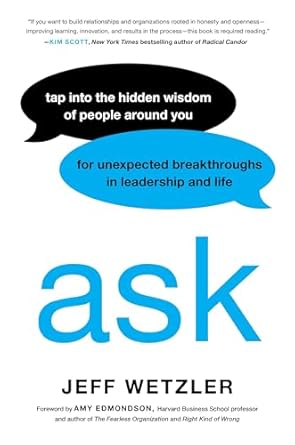
Fall is the season of new beginnings, and I hope you find the information in our new issue to be a valuable companion for your leadership journeys and adventures!
